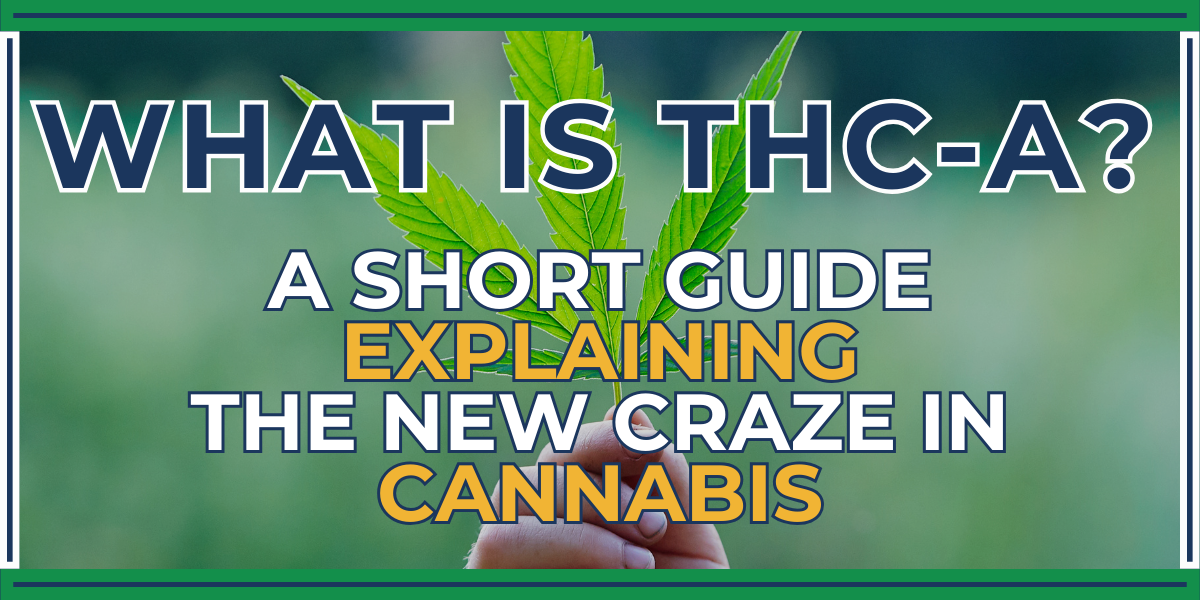
Explaining Cannabis: What is THC-A?
Summary
Explore the intricate transformation of cannabis compound THCA to psychoactive THC through decarboxylation.
What is THC-A?
What is THC-A? THCA is non-psychoactive, meaning it does not produce the euphoric effects commonly associated with THC. The psychoactive effects become prominent when THCA undergoes a process typically triggered by heat, called decarboxylation, such as smoking or vaporizing cannabis, or through cooking processes when preparing edibles.
Potential Therapeutic Properties of THCA
In addition to its potential conversion to THC, THCA has been studied for its own potential therapeutic properties. Some research suggests that THCA may have anti-inflammatory and neuroprotective properties. It has also been investigated for its potential to reduce nausea and vomiting. However, research on THCA is still in the early stages, and more studies are needed to fully understand its effects and potential applications.
Decarboxylation
Decarboxylation involves the removal of a carboxyl group (COOH) from the molecular structure of THCA. The result of decarboxylation is the conversion of THCA into THC, thus producing the characteristic effects of cannabis consumption.
Activation via Heat
Heat activates the abundant THCA in raw cannabis.
Heat, whether from smoking or vaporizing, initiates the decarboxylation process.
Breaking the Carboxyl Group
The carboxyl group (COOH) is easily broken under heat, leading to the detachment of the carboxyl group from THCA.
This process results in the conversion of THCA into THC, with the release of carbon dioxide (CO2) as a byproduct.
Activation of Psychoactivity
Converting THCA to THC is essential to achieve the psychoactive effects associated with cannabis use.
THC binds to CB1 receptors in the brain and central nervous system, producing the characteristic euphoria or “high.”
Smoking vs. Vaporizing
Smoking involves combustion, rapidly decarboxylating THCA.
Vaporizing uses lower temperatures, allowing for controlled decarboxylation and preserving a broader range of cannabinoids and terpenes.
Effect on Cannabinoid Profile
Decarboxylation affects the overall cannabinoid profile, influencing the concentrations of various compounds in the cannabis product.
This detailed breakdown enhances the understanding of the biochemical processes involved in the conversion of THCA to THC and the factors that influence the resulting effects and chemical composition of cannabis. Here are a couple of THCA options we currently carry at PurePuff:
THCA CONCENTRATE:
NYB THCA CONCENTRATE: GORILLA GLUE
NYB THCA CONCENTRATE: PAPAYA RUNTZ
THCA PRE-ROLLS:
2g THCA Pre-Roll with THCA Diamonds Pineapple Express
2g THCA Pre-Roll with THCA Diamonds Sunset Sherbet
THCA FLOWER BY ENJOY:
Thanks for reading and try THC-A safely today!
`THCA, Cannabinoid Science, Cannabis Chemistry, Cannabis Research`, Decarboxylation Process, Heat-Activated THC, Non-Psychoactive Cannabinoid, Raw Cannabis Compound, THC Conversion, Therapeutic Cannabis